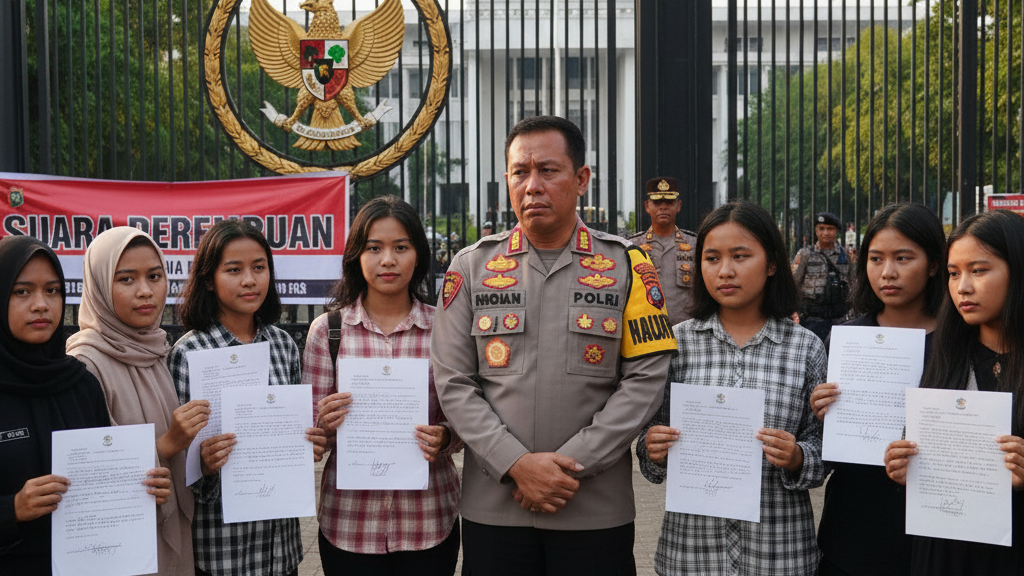It’s hard not to feel a surge of indignation when the very guardians of justice appear to shrug off the suffering of women and children. In Indonesia, under the watch of the Prabowo Subianto-led administration, the troubling pattern of denial, minimisation and outright dismissal of gender-based abuses feels less like oversight than a willful turning away. The stories of children silenced in Islamic boarding schools (pesantren), of teenage girls caught in the disgraceful and brutal mass-rape of May 1998, and of a patriarchal elite determined to keep damaging truths buried beneath the veneer of kebanggaan nasional (national pride) all point to a culture of impunity.
On 14 October 2025, Minister of Religious Affairs Nasaruddin Umar casually claimed that media reports of sexual abuse in Islamic boarding schools involved “only a small number” of cases and that the press had exaggerated the problem. His words not only disrespected the victims; they sent a signal to perpetrators that their actions can be overlooked. According to the SIMFONI-PPA report of the Ministry of Women’s Empowerment and Child Protection, by July 2025 over 10,000 cases of child abuse had been recorded for the year already — more than half the total for the previous year. And yet, instead of confronting the issue head-on, the minister’s response was more concerned with protecting institutions than protecting children. That is not merely a lapse in governance; it is a reflection of a deep-seated budaya patriarki (patriarchal culture) where women and children are still seen as second-class citizens.
Then there is the case of Fadli Zon, Minister of Culture, who in June 2025 dismissed the well-documented mass-rape of Chinese-Indonesian women during the May 1998 riots as mere “rumours.” He even instructed the revision of history textbooks so that they would adopt a “more positive tone” toward national leaders, effectively erasing these episodes of gender-based violence from the collective memory. The fact-finding team at the time had documented at least 52 rape cases, with survivors telling of gang rape, broken bodies, and lifelong trauma. Yet the minister implied that such horrors weren’t “mass” enough to merit the label — reducing suffering to a semantic argument. This is not mere incompetence; it is penghapusan sejarah (erasure of history), an active shaping of national narrative in which the trauma of women is considered dispensable.
What we see here is a pattern: an administration rooted in budaya maskulinisme (male-dominated culture) and a militarised hierarchy where the voices of women and children are marginalised by design. The concept of tutup mata (turning a blind eye) plays out in governance: swift to defend institutions, slow to protect the vulnerable. The persistence of such denial isn’t accidental. It draws from a long tradition of jaga muka (saving face) — maintaining a public façade of morality while concealing systemic rot.
Take the pesantren cases: these institutions, historically under male clerical control, are rarely held accountable when abuse is exposed. The response from Nasaruddin Umar — worried about “negative connotation” for Islamic boarding schools — reveals a hierarchy of concern that places institutions above individuals. When the ministry charged with safeguarding children’s rights cannot or will not call abuse in such settings by its name, we must ask how seriously the rights of women and children are prioritised within the cabinet.
And the May 1998 case remains emblematic. The cries of teenage girls — one only 14 years old — amid rioting, looting, and ethnic targeting were submerged under layers of national amnesia. The refusal to recognise those abuses is not only injustice to survivors; it signals to every woman and girl in Indonesia that her pain may not count, her rights can be ignored, and her story can be rewritten away.
If Indonesia is serious about equality and justice, the Prabowo government must confront truth rather than protect patriarchy. The budaya bapakisme (father-knows-best culture) that persists in the upper echelons of power cannot carry the weight of reform. Lindungi perempuan — protect women — is a phrase without meaning if ministers reduce abuse to “small numbers” or “rumours.” It is high time that institutional façades give way to real accountability — for the sake of the children silenced in boarding schools, for the women whose bodies were battlegrounds in 1998, and for a future Indonesia that honours its women and children as full citizens, not victims to be ignored.

